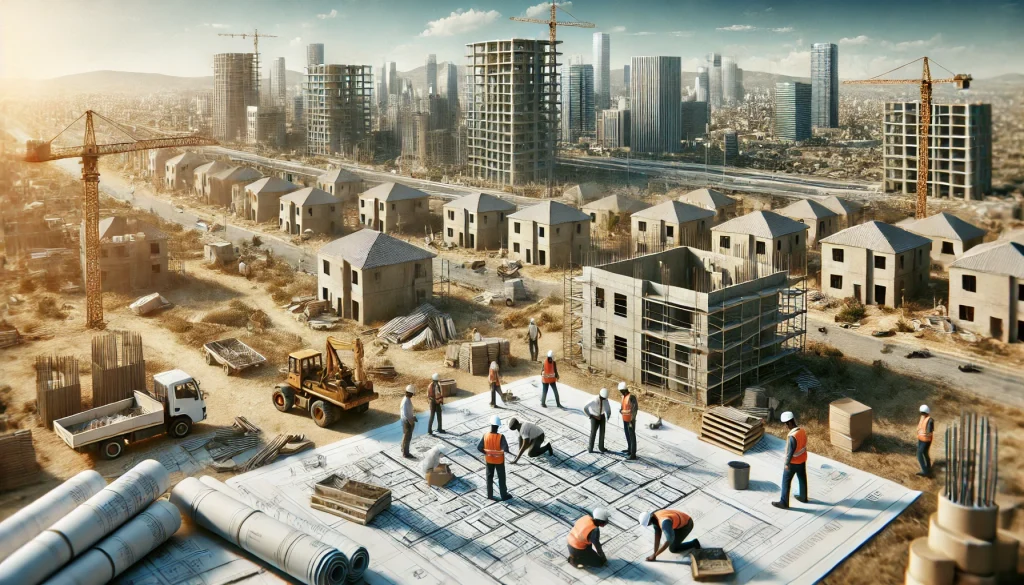Real estate growth in Sub-Saharan Africa is rapidly gaining momentum, presenting both remarkable opportunities and significant challenges. As one of the fastest urbanizing regions in the world, Sub-Saharan Africa is witnessing a surge in demand for residential, commercial, and industrial properties. This growth is fueled by a burgeoning middle class, increased foreign investment, and advancements in infrastructure development. Investors and developers are increasingly looking to capitalize on the region’s potential.
However, the growth of the real estate sector in this region is not without its obstacles. Complex regulatory environments, inadequate infrastructure, and socio-economic disparities pose significant challenges. Despite these hurdles, innovative solutions and promising trends are emerging to address these issues. By understanding the intricacies of the real estate landscape, stakeholders can better navigate these challenges and seize emerging opportunities.
Challenges facing real estate growth in Sub-Saharan Africa

The regulatory environment in Sub-Saharan Africa is one of the primary challenges hindering real estate development. The regulatory landscape varies widely across countries, often characterized by complex legal frameworks and bureaucratic procedures. Additionally, inadequate infrastructure, such as limited access to utilities and poor transportation networks, poses significant barriers.
In many areas, basic infrastructure like roads, electricity, and water supply is either lacking or inefficient. This not only affects the feasibility of new developments but also increases the cost of construction. Socio-economic disparities also impact real estate growth, as affordability and access to financing remain critical issues. A large segment of the population cannot afford formal housing, limiting the potential customer base for real estate developers.
Regulatory challenges and solutions
To address regulatory challenges, governments and stakeholders must work towards streamlining legal processes and promoting transparency. Governments can simplify procedures by establishing one-stop-shop services for permits and approvals, reducing the bureaucratic burden on developers. Collaboration between public and private sectors is crucial to implement effective policies.
By engaging with industry experts and investors, governments can develop regulations that balance growth with sustainable development. Advancements in technology provide additional solutions, offering innovative ways to overcome regulatory barriers. Digital platforms for land registration and permit applications can streamline processes and enhance transparency.
Infrastructure and financing solutions
Infrastructure development is vital for supporting real estate growth in Sub-Saharan Africa. Public-private partnerships can play a pivotal role in financing and implementing large-scale infrastructure projects. Collaborative efforts can enhance transportation networks, expand utility services, and upgrade urban areas, creating favorable conditions for real estate investments.
Addressing financing challenges requires innovative solutions, such as microfinance initiatives and alternative funding models. Encouraging the growth of mortgage markets, along with the introduction of flexible payment plans, can improve access to housing finance.
Emerging technologies, such as blockchain, offer transformative potential for real estate transactions and financing. By increasing transparency and reducing transaction costs, blockchain technology can facilitate greater access to investment opportunities and democratize real estate ownership.
Emerging opportunities in Sub-Saharan real estate
The rapid urbanization in the region is driving demand for diverse real estate assets. Opportunities abound in residential, commercial, and industrial sectors, with rising income levels propelling the need for modern housing and retail spaces. Sub-Saharan Africa’s youthful population, coupled with increased urban migration, is creating a dynamic market for real estate development. Eco-friendly and sustainable development projects present unique opportunities.
As global awareness of environmental issues grows, there is increasing demand for green buildings and sustainable infrastructure, making this a key area of innovation. Developers focusing on environmentally conscious construction practices can capture a significant share of the market, appealing to a new generation of environmentally savvy consumers. The rise of smart cities represents a forward-looking opportunity within real estate growth in Sub-Saharan Africa. As digital connectivity improves, governments and developers are investing in smart city initiatives, integrating technology into urban planning.
Investments in new urban areas
Investing in new urban development areas offers significant potential for growth. As existing cities become densely populated, planners and developers are exploring new regions to develop. These projects often involve comprehensive urban plans, which include residential, commercial, and recreational spaces, creating vibrant new communities.
Economic growth hubs, such as new special economic zones (SEZs), provide strategic investment opportunities. SEZs offer incentives like tax breaks and simplified regulations to attract businesses and investors. These zones can act as catalysts for regional growth, creating jobs, boosting infrastructure, and driving demand for real estate assets across various sectors. The emphasis on inclusive urban development is also providing fresh opportunities. By incorporating affordable housing into urban planning, developers can tap into a broader customer base while addressing socio-economic challenges.
Technology and innovation in real estate
Technology and innovation are transforming the real estate landscape in Sub-Saharan Africa. PropTech, which includes applications like virtual reality and digital marketplaces, is revolutionizing how properties are marketed and sold. Smart building technologies offer exciting possibilities for modern real estate development. Integrating IoT devices and energy-efficient systems not only enhances building management but also provides cost savings and increased property value.
The potential for technological innovation to overcome traditional challenges is vast, offering investors and developers a chance to leverage cutting-edge solutions. By staying at the forefront of technological advancements, stakeholders can enhance their competitive advantage.



